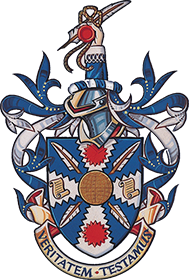What is a Notary Public is a question that a lot of people (including lawyers) ask every day.
Traditionally, the need for a Notary Public arises when you are dealing with legal documents for a foreign country such as a Power of Attorney, getting married abroad, foreign company documents and so on.. What is the difference between a Notary Public and a Solicitor. Can you simply consult your regular Solicitor to assist? In short No.
We spoke to Prosperity Law Partner and also, Notary Public, Jonathon Durkin, who provided us with some examples of when you might need a Notary Public, and how this specialised area differs from what your usual Solicitor is able to do.
What is a Notary Public?
Most Notary Publics begin their careers as Solicitors, and then undergo additional training including a degree and further studies to qualify. A Notary is a completely separate profession to a Solicitor and has a separate governing body – The Notary Society. The main role of a Notary Public is to check and ensure the identification of the people executing the document, certify the signatures, and ensure that the documents will be accepted abroad. Once completed, the documents in question should then be viable for use both inside, and outside England or Wales.
For a fuller explanation of how a Notary Public differs from a Solicitor, you can read our dedicated blog.
Occasions where you might need a Notary Public
International Power of Attorney
If you require a Power of Attorney in a foreign country, the documentation will need to be notarised. You might need an international power of attorney because:
You’re inheriting from a family member who lives abroad.
You’re buying or selling property abroad.
You live in England or Wales but have interests in other countries, which you want to be maintained by an appointed individual.
Certifying degree certificates for use in a foreign country
If you’re looking to work or study abroad, foreign Universities, Governments, and trade bodies may ask for your qualifying certificates to be notarised. This means the Notary Public will verify the document here, so that it’s trusted to accurately represent your qualification. Diplomas and degrees that can be notarised include:
Vocational qualifications and diplomas
Foundational degree
Undergraduate degree
Postgraduate degree
Doctoral degree
Certifying ID
If you’re travelling abroad, whether for personal or business reasons, there are a variety of instances where you’ll need a Notary Public to complete an ID check on the document in question. The Notary Public will certify the document as a true copy of the original, allowing you to travel, or carry on with your business in said country.
Signing foreign documents
When signing a foreign document, it’s best practice to have the signing witnessed by a Notary Public. Such documents might include:
Those relinquishing inheritances or releasing funds from pensions
Certificates of non-impediment
Company documents
Court proceedings, where an allocated person has to act on your behalf, in a different jurisdiction
If you’d like to enquire about our Notary Public services, or have a confidential discussion to suss out if you’re in need of one – please feel free to get in touch with Jonathon on Jonathan@JonathanDurkin.co.uk or call 07763902006

